Find Help
More Items From Ergsy search
-

IVF Fertility Treatment from MumsNet
Relevance: 100%
-
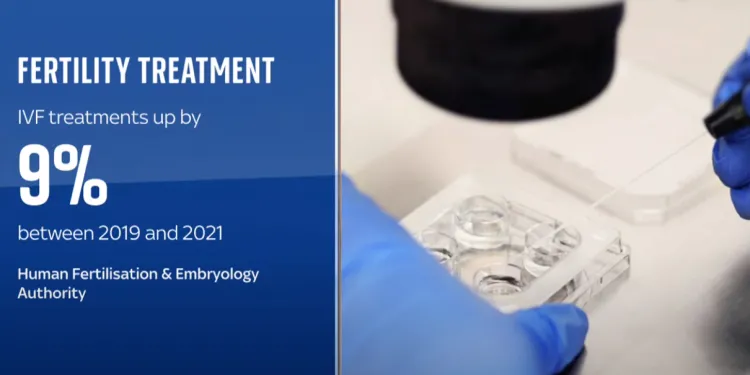
Fertility treatments on the up, but not via the NHS
Relevance: 88%
-
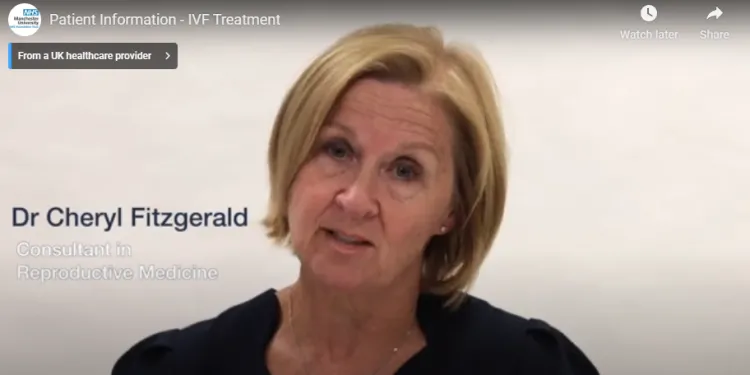
Infertility - IVF Treatment and Patient Information
Relevance: 79%
-

What should I expect during IVF treatment?
Relevance: 73%
-

Who might need IVF?
Relevance: 71%
-
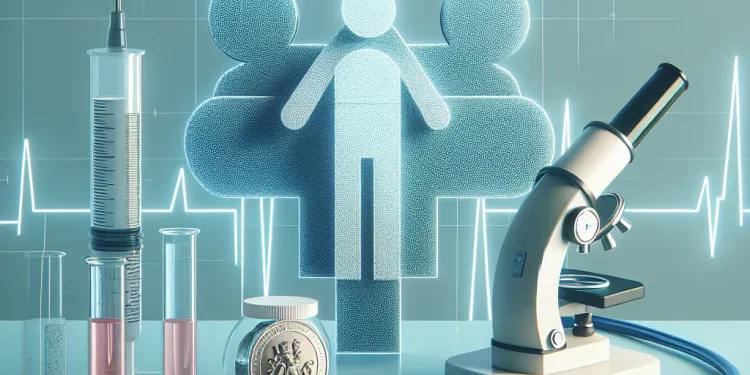
How do clinics determine if IVF is the right option?
Relevance: 68%
-

How does IVF work?
Relevance: 68%
-
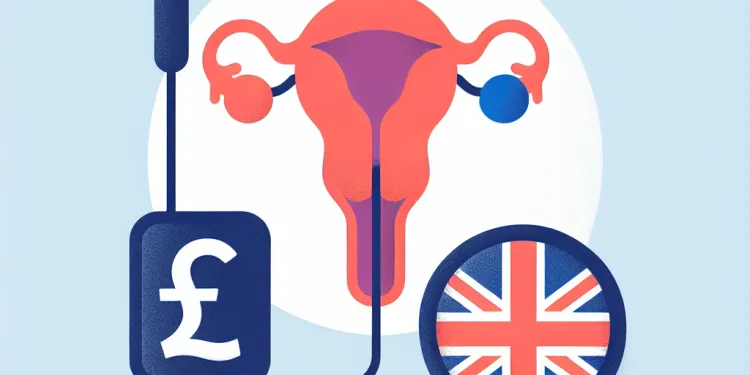
What is IVF?
Relevance: 67%
-

Does IVF guarantee pregnancy?
Relevance: 65%
-

Are there risks associated with IVF?
Relevance: 65%
-
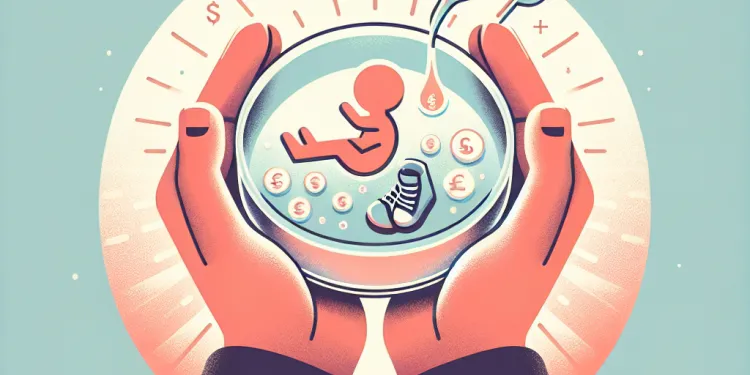
Is IVF successful?
Relevance: 65%
-
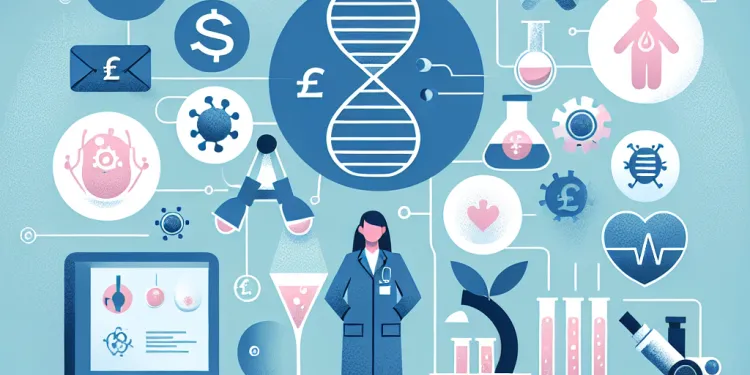
How is the sperm used in IVF?
Relevance: 63%
-

What is the role of the embryologist in IVF?
Relevance: 63%
-

What are the main steps in an IVF cycle?
Relevance: 60%
-

Does IVF require anesthesia?
Relevance: 59%
-

Can IVF be used for gender selection?
Relevance: 59%
-

Can IVF be done with donor eggs or sperm?
Relevance: 59%
-
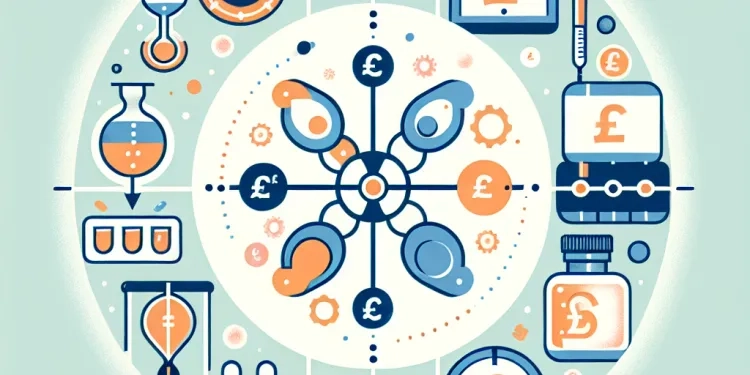
How long does an IVF cycle take?
Relevance: 59%
-

What is IVF and how does it work?
Relevance: 58%
-
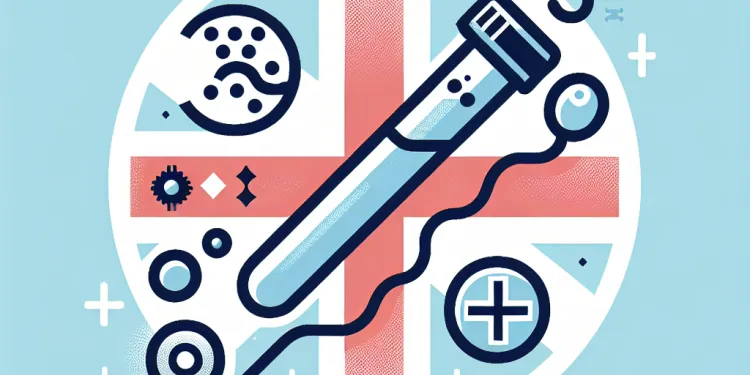
Is fertility affected by testicular cancer?
Relevance: 57%
-

How many embryos are usually transferred in IVF?
Relevance: 55%
-

How are embryos transferred during IVF?
Relevance: 55%
-

Does the COVID jab affect fertility?
Relevance: 45%
-

Female infertility explained
Relevance: 40%
-

How to apply for NHS funding to treat infertility
Relevance: 38%
-

What are the reasons for female infertility?
Relevance: 28%
-

Ian Stones - Test him - Male Infertility
Relevance: 28%
-

Can medications affect pregnancy test results?
Relevance: 25%
-

What types of treatments are available for testicular cancer?
Relevance: 23%
-
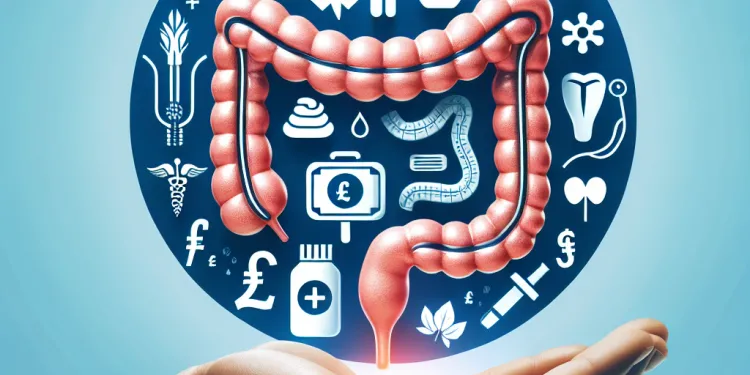
What are the side effects of bowel cancer treatment?
Relevance: 23%
-

Can testicular cancer recur after treatment?
Relevance: 23%
-

Cancer treatment: what happens during radiotherapy? | NHS
Relevance: 22%
-
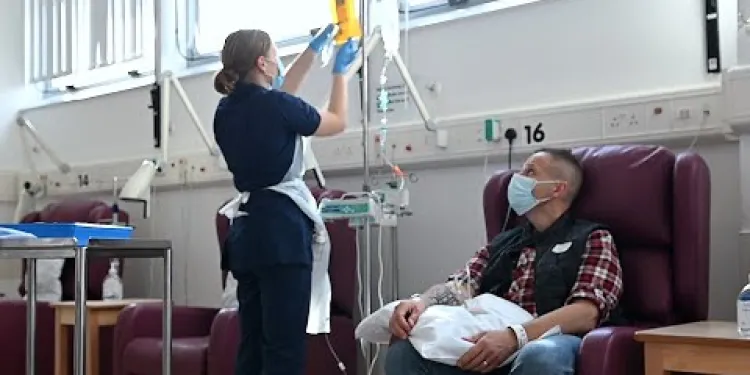
Having chemotherapy and other treatments in the Day Treatment Unit
Relevance: 22%
-

Is there a treatment for measles?
Relevance: 21%
-

What are the reasons for male infertility?
Relevance: 21%
-

Is there a treatment for measles?
Relevance: 21%
-

Can women use Abiraterone for treatment?
Relevance: 21%
-

Are chiropractic treatments safe?
Relevance: 21%
-

Is Botox treatment expensive?
Relevance: 21%
-

Are chiropractic treatments painful?
Relevance: 21%
In vitro fertilization (IVF) is an assisted reproductive technology that has revolutionized the way many individuals and couples can achieve pregnancy. IVF is a medical procedure that involves fertilizing an egg with sperm outside of the body, in a laboratory setting, and then implanting the resulting embryo into the uterus.
The IVF process typically begins with hormonal stimulation of the ovaries to produce multiple eggs. These eggs are then retrieved through a minimally invasive procedure. Meanwhile, sperm from either a partner or a donor is collected and processed. In the laboratory, eggs and sperm are combined to facilitate fertilization, resulting in the formation of embryos. These embryos are cultured for a few days before one or more of the healthiest ones are selected for transfer into the woman's uterus.
IVF is commonly used to overcome various causes of infertility, including fallopian tube blockages, male infertility issues, ovulation disorders, or unexplained infertility. It can also be employed for individuals or couples with genetic conditions who wish to avoid passing them on to their offspring.
While IVF has brought hope to countless people, it is not without challenges. The process can be physically and emotionally demanding, with no guarantee of success in every attempt. Multiple rounds of IVF may be necessary for some, increasing the financial and emotional burdens.
However, IVF has a high success rate, and continuous advancements in technology have improved outcomes and made it a more accessible option. It has allowed millions of people worldwide to realize their dreams of parenthood and has reshaped the landscape of reproductive medicine, offering new possibilities for those facing fertility challenges.
- What is IVF? - In vitro fertilization (IVF) is a fertility treatment method where eggs and sperm are combined outside the body in a laboratory to create embryos, which are then transferred into the uterus for potential pregnancy.
- Who can benefit from IVF? - IVF is often recommended for couples or individuals with various fertility issues, such as blocked fallopian tubes, male infertility, unexplained infertility, or genetic disorders.
- How does IVF work? - The process involves ovarian stimulation, egg retrieval, fertilization in the lab, embryo culture, and embryo transfer into the uterus. Hormonal medications are often used to control egg maturation and retrieval timing.
- What are the success rates of IVF? - Success rates can vary based on factors like age, cause of infertility, and the clinic's expertise. On average, the success rate per cycle is around 20-40% for women under 35.
- Is IVF safe? - IVF is generally considered safe, but like any medical procedure, it carries some risks, including multiple pregnancies and ovarian hyperstimulation syndrome (OHSS). Your healthcare provider will discuss potential risks with you.
- How many embryos should be transferred? - The number of embryos transferred depends on various factors, including age and embryo quality. Guidelines aim to minimize the risk of multiple pregnancies.
- Is IVF covered by insurance? - Insurance coverage for IVF varies widely. Some plans offer partial or full coverage, while others do not cover it at all. Check with your insurance provider for details.
- Are there alternatives to traditional IVF? - Yes, alternatives include intracytoplasmic sperm injection (ICSI), egg freezing, donor eggs or sperm, and gestational surrogacy.
- How long does an IVF cycle take? - An IVF cycle typically takes several weeks, from ovarian stimulation to embryo transfer. Exact timelines may vary.
- Does IVF guarantee pregnancy? - IVF offers no guarantee of pregnancy, but it significantly improves the chances of conception, especially for those with specific fertility issues.
- What is the cost of IVF? - The cost of IVF varies widely by location and clinic. It can range from a few thousand to tens of thousands of dollars per cycle.
- Are there age limits for IVF? - Most IVF clinics have age limits for patients, typically ranging from late 40s to early 50s. These limits are due to declining success rates with age.
- Can IVF be emotionally challenging? - Yes, the emotional toll of IVF can be significant due to the uncertainty, stress, and waiting associated with the process. Counseling and support can be beneficial.
- Are there any lifestyle changes recommended during IVF? - Maintaining a healthy lifestyle, including a balanced diet, regular exercise, and stress management, can support IVF success.
- How many IVF cycles are typically needed? - The number of IVF cycles required varies from person to person. Some individuals or couples achieve success in one cycle, while others may need multiple attempts before achieving pregnancy. Your doctor can provide guidance based on your specific situation.
IVF Treatment: A Comprehensive Guide for UK Families
What is IVF?
In Vitro Fertilisation, commonly known as IVF, is a procedure used to help individuals or couples conceive a child. It involves the fertilisation of an egg outside the female body, in a lab dish. Once the egg is fertilised and becomes an embryo, it is then implanted into the uterus. This treatment is often pursued when other fertility methods have not been successful.
How Does IVF Work?
The IVF process typically involves several steps. Initially, ovulation induction is carried out to stimulate the ovaries to produce multiple eggs. This is followed by egg retrieval, where the eggs are collected from the ovaries. Sperm is then gathered and used to fertilise the eggs in a laboratory. The resulting embryos are monitored, and the healthiest one(s) are selected to be transferred into the woman’s uterus. If successful, the embryo will implant and develop into a pregnancy.
Why Choose IVF?
IVF is an option for many individuals and couples facing infertility challenges. Common reasons include blocked fallopian tubes, male factor infertility, ovulation disorders, premature ovarian failure, and unexplained infertility. Same-sex couples and single parents may also use IVF with donor sperm or eggs to conceive.
What to Expect During IVF Treatment
Embarking on IVF treatment can be both physically and emotionally taxing. Patients should be prepared for frequent clinic visits, hormonal injections, and the stress of waiting for results. Comprehensive counselling and support services are often available to help manage the emotional aspects of the journey. It’s crucial to have a support system in place, whether it's through friends, family, or online communities like MumsNet.
Cost and Accessibility in the UK
The cost of IVF can vary significantly in the UK, and it’s important to research and understand the financial commitment involved. The NHS may offer IVF treatment, but eligibility criteria can be stringent and waiting lists long. Many private clinics offer IVF, but costs can be substantial, often ranging from £4,000 to £8,000 per cycle. Financial assistance and financing options may be available.
Success Rates and Considerations
IVF success rates can vary based on multiple factors including age, medical history, and the specific cause of infertility. Younger women generally have higher success rates. It’s important to discuss individual circumstances with a healthcare provider to get a realistic understanding of the odds. Resources like MumsNet can provide anecdotal experiences and support throughout the IVF journey.
IVF, or in vitro fertilization, is a special medical way to help people have a baby. It helps when there are problems getting pregnant. Here is how it works: Doctors take an egg from a woman's body and mix it with a man's sperm in a lab. This makes a tiny baby, called an embryo, which is then put into the woman's belly where it can grow into a baby.
The IVF process begins by giving medicine to a woman to help her make lots of eggs. Doctors take out the eggs and mix them with sperm in a lab. The best tiny babies, or embryos, are put into the woman's belly to help her get pregnant.
People use IVF for many reasons, like if there are problems with a woman's tubes, issues with a man's sperm, or other reasons that make it hard to have a baby. IVF can also help people who don't want to pass on certain health problems to their children.
Even though IVF helps many people, it can be hard and tiring. It doesn't always work the first time, and it might take a few tries, which can cost money and make people feel stressed.
But many people have had babies thanks to IVF, and as technology gets better, IVF becomes an option for more people who want help having a baby.
- What is IVF? - IVF helps people have babies by mixing an egg and sperm outside the body and then putting the embryo into a woman's belly.
- Who can benefit from IVF? - People who have trouble having a baby because of blocked tubes, sperm problems, or other issues can use IVF. It also helps people not pass on certain health problems.
- How does IVF work? - Doctors give medicine to help make eggs, take them out, mix them with sperm, and put one or more embryos in the woman's belly.
- What are the success rates of IVF? - IVF success can be 20-40% for women under 35, but it depends on many things like age and health.
- Is IVF safe? - IVF is safe for most people, but there are risks like having twins or more. Doctors will talk about these risks with you.
- How many embryos should be transferred? - Doctors decide how many embryos to put in based on age and health. They try to avoid having twins or more to keep things safer.
- Is IVF covered by insurance? - Some insurance plans pay for IVF, but not all. Check with your insurance company to see what is covered.
- Are there alternatives to traditional IVF? - Other ways to help have a baby include using a sperm injection, freezing eggs, or having a surrogate carry the baby.
- How long does an IVF cycle take? - One IVF cycle takes a few weeks, but the time can be different for everyone.
- Does IVF guarantee pregnancy? - IVF can help people get pregnant, but it doesn't work every time.
- What is the cost of IVF? - IVF can cost a lot, sometimes thousands of dollars for each try. The cost is different depending on where you are and the clinic.
- Are there age limits for IVF? - Many clinics have age limits for trying IVF; this is usually in the late 40s or early 50s because it's harder to get pregnant as you get older.
- Can IVF be emotionally challenging? - IVF can be stressful and hard on feelings because it is a big deal and doesn't always work. Talking to a counselor can help.
- Are there any lifestyle changes recommended during IVF? - Eating well, exercising, and managing stress can help make IVF work better.
- How many IVF cycles are typically needed? - Some people get pregnant after one IVF cycle, but others might need to try a few times. Doctors can help figure out what is best for each person.
IVF Treatment: A Complete Guide for UK Families
What is IVF?
IVF stands for In Vitro Fertilisation. It helps people have a baby. Doctors take an egg from a woman's body. They mix it with sperm in a lab to make an embryo. Then, they put the embryo back into the woman's uterus. People try IVF when other ways to have a baby do not work.
How Does IVF Work?
IVF has several steps. First, doctors help the woman's body make lots of eggs. Then, they collect these eggs. They also collect sperm. In the lab, they mix the eggs and sperm to create embryos. They watch the embryos and choose the healthiest one. This embryo is placed in the woman's uterus. If it grows, it can become a baby.
Why Choose IVF?
People choose IVF for different reasons. Some reasons are blocked tubes in women, problems with sperm in men, or trouble with a woman's ovulation. Sometimes, doctors do not know why someone cannot have a baby. IVF can also help same-sex couples and single parents using donor eggs or sperm to have a baby.
What to Expect During IVF Treatment
IVF can be hard on the body and emotions. You will go to the clinic a lot, get hormone shots, and wait for news. Many clinics offer help and counseling. It is important to have support from friends, family, or online groups like MumsNet to talk about your feelings.
Cost and Accessibility in the UK
IVF can be expensive in the UK. It is good to learn about the costs before you start. The NHS might help pay for IVF, but not everyone can get it, and there are long waiting lists. Private clinics also offer IVF. It can cost between £4,000 and £8,000 for each treatment cycle. Some clinics have ways to help you pay for it.
Success Rates and Considerations
How well IVF works depends on things like age and health. Younger women often have better success rates. It is good to talk to your doctor to understand your chances. Websites like MumsNet have stories from other people who have tried IVF and can give support and advice.
Frequently Asked Questions
What is IVF?
IVF (In Vitro Fertilisation) is a process where an egg is fertilised outside the body, in a special laboratory, before being implanted into the uterus.
Who might need IVF?
IVF may be recommended for couples with infertility issues, such as blocked fallopian tubes, severe male infertility, or unexplained infertility. It's also an option for same-sex couples or single women who wish to conceive.
What is the success rate of IVF in the UK?
The success rate of IVF varies depending on several factors, including the age of the woman, the cause of infertility, and the clinic's specific success rates. On average, around 30% of IVF treatments result in a live birth in the UK.
How much does IVF treatment cost in the UK?
The cost of IVF in the UK can vary widely but typically ranges from £5,000 to £8,000 per cycle, including medication and consultations.
Is IVF treatment available on the NHS?
Yes, IVF treatment is available on the NHS in the UK, but eligibility criteria and the number of cycles funded can vary by region.
What are the main steps involved in an IVF cycle?
The main steps in an IVF cycle include ovarian stimulation, egg retrieval, fertilisation, embryo culture, and embryo transfer.
What medications are used during IVF?
Medications used during IVF may include fertility drugs to stimulate the ovaries to produce multiple eggs, as well as drugs to help prepare the lining of the uterus for implantation.
How long does an IVF cycle take?
A full IVF cycle can take about 4 to 6 weeks from the start of medication to the embryo transfer.
Are there any risks associated with IVF?
Risks of IVF include ovarian hyperstimulation syndrome (OHSS), multiple pregnancies, and complications from the egg retrieval procedure.
Can lifestyle changes improve the success rate of IVF?
Healthy lifestyle choices such as maintaining a balanced diet, regular exercise, quitting smoking, and reducing alcohol intake may improve IVF success rates.
What is ICSI and how does it differ from IVF?
ICSI (Intracytoplasmic Sperm Injection) is a variation of IVF where a single sperm is directly injected into an egg to assist fertilisation. It's often used in cases of severe male infertility.
Can IVF be used for genetic screening?
Yes, preimplantation genetic testing (PGT) can be performed during IVF to screen embryos for genetic conditions before implantation.
What should I expect during an embryo transfer?
During an embryo transfer, the fertilised embryo is placed into the uterus using a thin catheter. It's typically a quick and painless procedure.
How soon after IVF can I take a pregnancy test?
You can usually take a pregnancy test about two weeks after the embryo transfer to determine if the treatment was successful.
What support is available for couples undergoing IVF?
Many clinics offer counselling and support groups. Online forums, such as those on MumsNet, provide a community for sharing experiences and advice.
What is IVF?
IVF means In-Vitro Fertilization.
It is a way to help people have a baby.
Doctors take eggs from a woman.
They mix the eggs with a man's sperm in a lab to make an embryo.
They put the embryo in the woman's womb to grow.
If you need more help, you can ask a doctor or nurse.
Using pictures can also help you understand.
IVF means making a baby outside the body. Doctors take a woman's egg and mix it with a man's sperm in a special lab. Once it becomes a tiny baby, they put it back into the woman's tummy.
Who might need help to have a baby with IVF?
IVF is a way to help people have a baby. It can help if a couple has problems like blocked tubes in a woman's body, or if there are issues with the man's sperm. IVF is also for when doctors don't know why having a baby is hard. Same-sex couples and single women who want a baby can also use IVF.
How often does IVF work in the UK?
How often IVF works can change based on a few things. These include how old the woman is, why she can't have a baby, and how good the clinic is. In the UK, about 30 out of 100 IVF treatments lead to having a baby.
What is the cost of IVF treatment in the UK?
IVF is a way to help people have a baby. It can cost different amounts of money. Prices can change depending on where you go.
On average, IVF costs around £5,000 for one round. Sometimes, it can cost more.
If you need to know more about prices, you can:
- Ask a doctor or a nurse for help.
- Visit a clinic and talk to them.
- Look up information on trusted websites.
IVF is a way to help people have babies. In the UK, IVF usually costs between £5,000 and £8,000 for one round. This price includes the medicine and doctor visits you need.
Can you get IVF treatment from the NHS?
IVF is a way to help people have babies. The NHS might pay for IVF, but it depends on where you live and your health needs.
Here are some tools and tips to help:
- Ask your doctor for help.
- Check the NHS website for information.
- Write down any questions you have and ask someone to help you understand.
Yes, the NHS in the UK can help people have babies using IVF treatment. But, who can get help and how many times you can try can be different depending on where you live.
What are the main steps in an IVF cycle?
The main steps to help make a baby using IVF are:
1. **Ovarian Stimulation**: Medicine helps the ovaries make more eggs.
2. **Egg Retrieval**: Doctors take the eggs out of the ovaries.
3. **Fertilisation**: Eggs meet sperm to try to make a baby.
4. **Embryo Culture**: The tiny baby grows for a few days in a special place.
5. **Embryo Transfer**: Doctors put the tiny baby into the womb.
To understand better, you can:
- Watch videos about IVF.
- Use simple pictures or drawings of each step.
- Ask someone to explain it to you in words you understand.
What medicines are used for IVF?
When people want to have a baby using IVF, they might need to take some special medicines. These medicines help the body get ready to have a baby.
Here are some tools and tips to help you understand this better:
- Ask a doctor or nurse to explain things in a simple way.
- Use pictures or videos to see how the medicines work.
- Write down any questions you have and ask someone to help answer them.
During IVF, doctors use special medicines. These medicines help the woman’s body make more eggs. They also help the inside of the tummy get ready for the baby to stick.
You can use tools to make reading easier, like listening to audio books or using reading apps. They can help when you find reading hard.
How long does IVF take?
IVF is a way to help people have a baby. It is a special kind of treatment.
IVF usually takes about 6 to 8 weeks from start to finish. It can be different for each person.
If you need help, talk to a doctor or nurse. They can explain it step by step.
A full IVF cycle can take about 4 to 6 weeks. This is from when the medicine starts to when the embryo is put in the womb.
Are there any risks with IVF?
IVF, or in vitro fertilization, is a way to help people have a baby. But, like any medical treatment, there can be some risks. It's important to talk to a doctor about these risks. They can help you understand more about IVF.
IVF can have some risks. These include:
- Ovarian hyperstimulation syndrome (OHSS): This is when the ovaries get too swollen and sore.
- Multiple pregnancies: This means having twins or more at the same time, which can be hard on the body.
- Complications from getting the eggs: The doctor uses a needle to take eggs from the ovaries, and this can sometimes cause problems.
If you need help understanding, you can:
- Ask someone to read with you.
- Use a tool that reads out loud.
- Write down any words you don't know and ask someone to explain.
Can changing your habits help IVF work better?
Making healthy choices can help with IVF treatment.
Here are some things you can do:
- Eat a mix of different foods to keep a balanced diet.
- Exercise regularly, like going for a walk every day.
- Try to stop smoking.
- Drink less alcohol.
These things can make IVF work better.
Remember, you can use helpful tools like a calendar to plan meals and exercises.
What is ICSI and how is it different from IVF?
ICSI and IVF are ways to help people have babies.
ICSI is short for "Intracytoplasmic Sperm Injection." In ICSI, a doctor puts one tiny sperm inside one egg to help make a baby.
IVF stands for "In Vitro Fertilization." In IVF, eggs and sperm are mixed in a dish to help them join and start a baby.
The main difference is how the sperm and egg come together. In ICSI, it's done by the doctor. In IVF, it happens in the dish.
If reading is hard, you can ask someone to read this to you or use a tool that reads words out loud.
ICSI means a special way to help make a baby. It is when a doctor puts one tiny sperm into an egg to help them join together. This can help if a man has trouble with his sperm.
Can IVF check for genetic problems?
IVF can help check for problems in a baby's genes.
Doctors look at the tiny cells from the embryo before it grows in the mom's tummy.
This way, they can see if there are any problems in the baby's genes.
If you want help, you can talk to a doctor about IVF. They can also use pictures and simple words to explain things.
Yes, we can check embryos for genetic problems during IVF. This is called preimplantation genetic testing (PGT). We do this before putting the embryo in the womb.
What happens when a doctor puts an embryo in the womb?
The doctor will put the embryo into the woman's womb. This is called embryo transfer. It is a simple and short process.
Here is what usually happens:
- The woman lies on a bed.
- The doctor might use a tool to see inside, like a small camera.
- The doctor uses a special thin tube to gently place the embryo inside the womb.
The woman might feel a little pressure, but it should not hurt.
After the process, the woman can rest for a short time. Then, she can go home. It is important to rest and take care of the body after the transfer.
If you feel worried or have questions, you can talk to the doctor. Writing down questions before the visit can help. You can also bring a friend or family member for support.
When doctors put a tiny baby seed, called an embryo, into the belly area where babies grow, it's called embryo transfer. They use a skinny tube to do this. It is fast and doesn't usually hurt.
When can I take a pregnancy test after IVF?
After you have IVF, you might be excited to know if you are pregnant. It is best to wait about 2 weeks before taking a pregnancy test. This gives your body time to make enough pregnancy hormone for the test to show if you are pregnant.
If you take the test too early, it might not show the right answer. To help remember when to take the test, you can mark the date on a calendar.
If you need help or feel confused, ask your doctor or nurse. They can give you more information and support.
You can do a pregnancy test about two weeks after the embryo transfer. This will help you know if the treatment worked.
What help can couples get when having IVF?
Many health centers have people you can talk to and groups where you can meet others for help. Websites like MumsNet are places where you can share your stories and get advice from other people.
Useful Links
This website offers general information and is not a substitute for professional advice.
Always seek guidance from qualified professionals.
If you have any medical concerns or need urgent help, contact a healthcare professional or emergency services immediately.
Some of this content was generated with AI assistance. We’ve done our best to keep it accurate, helpful, and human-friendly.
- Ergsy carfully checks the information in the videos we provide here.
- Videos shown by Youtube after a video has completed, have NOT been reviewed by ERGSY.
- To view, click the arrow in centre of video.
- Most of the videos you find here will have subtitles and/or closed captions available.
- You may need to turn these on, and choose your preferred language.
- Go to the video you'd like to watch.
- If closed captions (CC) are available, settings will be visible on the bottom right of the video player.
- To turn on Captions, click settings .
- To turn off Captions, click settings again.
More Items From Ergsy search
-

IVF Fertility Treatment from MumsNet
Relevance: 100%
-

Fertility treatments on the up, but not via the NHS
Relevance: 88%
-

Infertility - IVF Treatment and Patient Information
Relevance: 79%
-

What should I expect during IVF treatment?
Relevance: 73%
-

Who might need IVF?
Relevance: 71%
-

How do clinics determine if IVF is the right option?
Relevance: 68%
-

How does IVF work?
Relevance: 68%
-

What is IVF?
Relevance: 67%
-

Does IVF guarantee pregnancy?
Relevance: 65%
-

Are there risks associated with IVF?
Relevance: 65%
-

Is IVF successful?
Relevance: 65%
-

How is the sperm used in IVF?
Relevance: 63%
-

What is the role of the embryologist in IVF?
Relevance: 63%
-

What are the main steps in an IVF cycle?
Relevance: 60%
-

Does IVF require anesthesia?
Relevance: 59%
-

Can IVF be used for gender selection?
Relevance: 59%
-

Can IVF be done with donor eggs or sperm?
Relevance: 59%
-

How long does an IVF cycle take?
Relevance: 59%
-

What is IVF and how does it work?
Relevance: 58%
-

Is fertility affected by testicular cancer?
Relevance: 57%
-

How many embryos are usually transferred in IVF?
Relevance: 55%
-

How are embryos transferred during IVF?
Relevance: 55%
-

Does the COVID jab affect fertility?
Relevance: 45%
-

Female infertility explained
Relevance: 40%
-

How to apply for NHS funding to treat infertility
Relevance: 38%
-

What are the reasons for female infertility?
Relevance: 28%
-

Ian Stones - Test him - Male Infertility
Relevance: 28%
-

Can medications affect pregnancy test results?
Relevance: 25%
-

What types of treatments are available for testicular cancer?
Relevance: 23%
-

What are the side effects of bowel cancer treatment?
Relevance: 23%
-

Can testicular cancer recur after treatment?
Relevance: 23%
-

Cancer treatment: what happens during radiotherapy? | NHS
Relevance: 22%
-

Having chemotherapy and other treatments in the Day Treatment Unit
Relevance: 22%
-

Is there a treatment for measles?
Relevance: 21%
-

What are the reasons for male infertility?
Relevance: 21%
-

Is there a treatment for measles?
Relevance: 21%
-

Can women use Abiraterone for treatment?
Relevance: 21%
-

Are chiropractic treatments safe?
Relevance: 21%
-

Is Botox treatment expensive?
Relevance: 21%
-

Are chiropractic treatments painful?
Relevance: 21%


